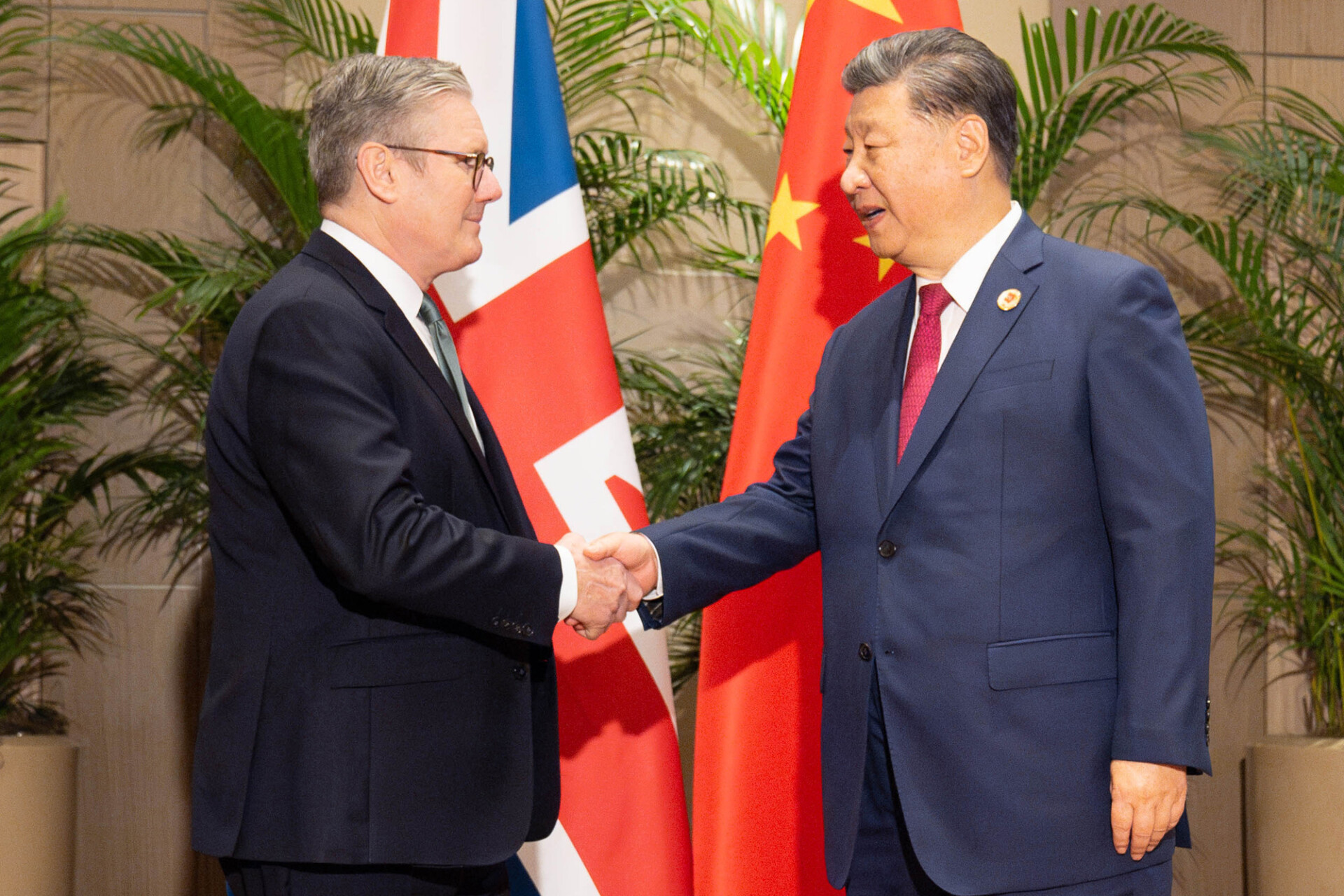Keir Starmer has made headlines by meeting Xi Jinping at the G20 summit in Brazil yesterday. Could it mark another change of tack in Britain’s China policy?
Labour has hardly been more forthcoming about its intentions abroad than any other area of policy, and China is no different. But the basic dilemma Beijing poses to British policy hasn’t changed.
The UK is not (yet) the sort of country targeted by things such as the Belt and Road Initiative — although Beijing might prove better at building our infrastructure than we are at present — but it isn’t hard to see why improved relations with Beijing would appeal to a government desperate for any hint of growth.
The challenge is that, even in the world of commerce, it is very hard to have fair competition with China because it does not play by Western rules. Any major Chinese company has political oversight, and many are in any event notorious for intellectual property theft.
This dilemma is best captured by what Labour will do about the National Security and Investment (NSI) Act. Passed by the previous government, this legislation gives the state more powers to intervene and block corporate takeovers in strategically important sectors, or where there is believed to be a major security risk.
Yet that increased security comes at a price. Generally speaking, the greater the scope for government — i.e. “politically motivated” — intervention in such matters, the worse the overall investment environment in the country concerned. Yet while such security-mindedness might be the right long-term call, relaxing the rules is more likely to lead to a short-term payoff. This goes doubly for big strategic shifts such as expanding domestic capacity in sectors such as microchips: it’s expensive, and Beijing has a big pool of ready cash.
The CCP knows this. It’s no surprise that Xi took the time to praise Starmer’s growth plan; generally speaking, the more focused British politicians are on headline growth, the less weight they give to domestic and global security arguments — something George Osborne’s fleeting “golden era” can attest to.
Some Labour figures did hint at a tougher line in Opposition. Business Secretary Jonathan Reynolds attacked Tory proposals to streamline the NSI Act. And Rachel Reeves delivered a lecture on “Securonomics” which was also the title of a Labour Together pamphlet by Hamish Falconer, now an FCDO minister.
There are also plenty of examples of Labour pulling in a more dovish direction. Last month, Angela Rayner called in plans for a so-called “super-embassy” in East London which had previously been blocked; one of Reeves’ advisors has facilitated access to the Treasury for Shein; and David Lammy, the Foreign Secretary, has refused to call Beijing’s persecution of the Uighurs a genocide.
Speaking of Lammy, he’s also been defending the Government’s plan to pay Mauritius to take the Chagos Islands, proposals which raise questions about the security of a critical British and American base given Port Louis’s exposure to Chinese influence.
Then there’s the question of universities. There are serious concerns about the role of Confucius Institutes as vectors for CCP influence overseas. But with the Government so desperate to prop up the sector that it’s raising fees, is it going to close the door on Beijing’s money?
For Starmer, who makes so much of his record as a human rights lawyer, the China question must pose something of a personal dilemma. Beijing’s record on human rights is horrific, and those abuses are inextricably linked to its economic power. Though he was critical of the country’s human rights record yesterday, it will be a test to see what effect this has on actual policy.
After all, it’s easy to have high principles in Opposition, or in legal practice. It’s much harder to stick to them when your poll rating is tanking, the economy is flat, and a more relaxed approach to China offers opportunity after opportunity for an easy short-term win.











Join the discussion
Join like minded readers that support our journalism by becoming a paid subscriber
To join the discussion in the comments, become a paid subscriber.
Join like minded readers that support our journalism, read unlimited articles and enjoy other subscriber-only benefits.
Subscribe